Related Research Articles
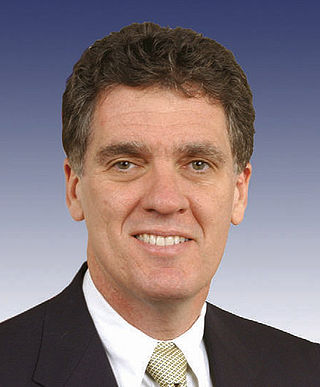
David Joseph Weldon is an American politician and physician. He was a Republican member of the United States House of Representatives,representing Florida's 15th congressional district,and was an unsuccessful candidate for the Republican nomination in Florida's 2012 U.S. Senate race.

John Hardy Isakson was an American businessman and politician who served as a United States senator from Georgia from 2005 to 2019. A member of the Republican Party,he previously served in the Georgia legislature and the United States House of Representatives.

The 1978 United States Senate elections were held on November 7,in the middle of Democratic President Jimmy Carter's term. The 33 seats of Class 2 were contested in regular elections. Special elections were also held to fill vacancies.

The 1976 United States Senate elections was an election for the United States Senate. Held on November 2,the 33 seats of Class 1 were contested in regular elections. They coincided with Democrat Jimmy Carter's presidential election and the United States Bicentennial celebration. Although almost half of the seats decided in this election changed parties,Carter's narrow victory did not provide coattails for the Democratic Party. Each party flipped seven Senate seats,although,one of the seats flipped by Democrats was previously held by a Conservative.

The 1972 United States Senate elections were held on November 7,with the 33 seats of Class 2 contested in regular elections. They coincided with the landslide re-election of Republican President Richard Nixon. Despite Nixon's landslide victory,Democrats increased their majority by two seats. The Democrats picked up open seats in Kentucky and South Dakota,and defeated four incumbent senators:Gordon Allott of Colorado,J. Caleb Boggs of Delaware,Jack Miller of Iowa,and Margaret Chase Smith of Maine. The Republicans picked up open seats in New Mexico,North Carolina,and Oklahoma,and defeated one incumbent,William B. Spong Jr. of Virginia.

The 1964 United States Senate elections were held on November 3. The 33 seats of Class 1 were contested in regular elections. Special elections were also held to fill vacancies. They coincided with the election of President Lyndon B. Johnson by an overwhelming majority,to a full term. His Democratic Party picked up a net two seats from the Republicans. As of 2023,this was the last time either party has had a two-thirds majority in the Senate,which allowed the Senate Democrats to override a veto,propose constitutional amendments,or convict and expel certain officials without any votes from Senate Republicans. However,internal divisions would have prevented the Democrats from having done so. The Senate election cycle coincided with Democratic gains in the House in the same year.

The 1954 United States Senate elections was a midterm election in the first term of Dwight D. Eisenhower's presidency. The 32 Senate seats of Class 2 were contested in regular elections,and six special elections were held to fill vacancies. Eisenhower's Republican party lost a net of two seats to the Democratic opposition. This small change was just enough to give Democrats control of the chamber with the help of the Independent who at the start of this Congress in January 1955 agreed to caucus with them;he later officially joined the party in April 1955.
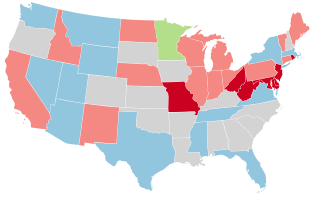
The 1928 United States Senate elections were elections that coincided with the presidential election of Republican Herbert Hoover. The 32 seats of Class 1 were contested in regular elections,and special elections were held to fill vacancies. The strong economy helped the Republicans to gain seven seats from the Democrats.
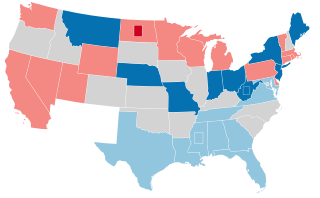
The 1910–11 United States Senate election were held on various dates in various states. As these U.S. Senate elections were prior to the ratification of the Seventeenth Amendment in 1913,senators were primarily chosen by state legislatures. Senators were elected over a wide range of time throughout 1910 and 1911,and a seat may have been filled months late or remained vacant due to legislative deadlock. However,some states had already begun direct elections during this time. Oregon pioneered direct election and experimented with different measures over several years until it succeeded in 1907. Soon after,Nebraska followed suit and laid the foundation for other states to adopt measures reflecting the people's will. By 1912,as many as 29 states elected senators either as nominees of their party's primary or in conjunction with a general election.
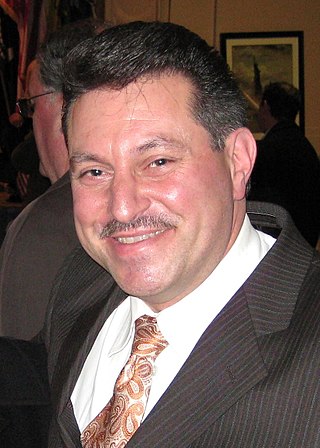
Joseph Patrick Addabbo Jr. is an American politician,a Democratic member of the New York State Senate from the 15th district representing Howard Beach,Ozone Park,Woodhaven,Glendale,Middle Village,Maspeth and parts of South Ozone Park,Ridgewood,Woodside and The Rockaways.

Patrick Grassley is an American politician. A member of the Republican Party,he is the grandson of Iowa United States Senator Chuck Grassley. He has served as the Iowa State Representative for its 57th District since 2023,having previously served the state's 17th (2007–2013) and 50th (2013–2023) districts in the Iowa House of Representatives. He was elected Speaker of the state's House in 2020.

John Joyner Snow Jr. is an American politician,attorney,and former football player who served as a member of the North Carolina Senate,for the 50th district from 2005 to 2011. His district included Cherokee,Clay,Graham,Haywood,Jackson,Macon,Swain and Transylvania counties. Snow was the co-chair of the Subcommittee on Justice and Public Safety.
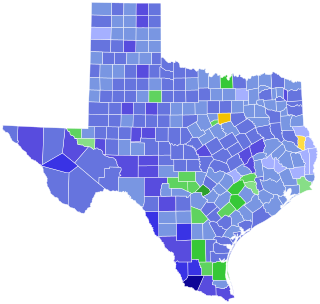
The 1934 United States Senate election in Texas was held on November 4,1934. Incumbent Democratic U.S. Senator Tom Connally was re-elected to a second term. Connally fended off a competitive primary challenge from U.S. Representative Joseph Weldon Bailey Jr. on July 28 before facing only nominal opposition in the general election.

The 1978 United States Senate election in Delaware was held on November 7,1978. Incumbent Democratic senator Joe Biden won re-election to a second term,defeating Republican challenger James H. Baxter Jr. in a landslide victory. This is the first of five elections in which Biden won all counties.

Robert Bruce Duff is an American politician,currently serving as a member of the Connecticut State Senate,where he represents Norwalk and part of Darien in Connecticut's 25th District. He previously served as a member of the Connecticut House of Representatives,representing the 137th District. He is currently Majority Leader of the Connecticut Senate,and serves as chair of the Executive and Legislative Nominations Committee and vice chair of the Legislative Management Committee.

The 1914 United States Senate election in Kansas was held on November 3,1914. This was the first election held after the passage of the 17th Amendment,which requires all United States Senators to be elected by popular vote.
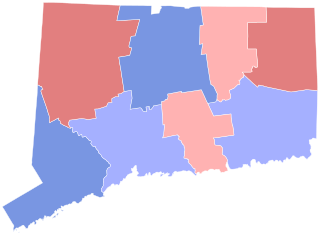
The 2018 Connecticut gubernatorial election took place on November 6,2018,to elect the next governor and lieutenant governor of Connecticut,concurrently with the election of Connecticut's Class I U.S. Senate seat,as well as other elections to the United States Senate in other states,elections to the United States House of Representatives,and various state and local elections. This race's Democratic margin of victory was the closest to the national average of 3.1 points.
George S. Logan is an American politician and member of the Republican Party. He served as a member of the Connecticut State Senate from 2017 to 2021. He was the Republican nominee for Connecticut's 5th congressional district in the 2022 United States House of Representatives elections in Connecticut,ultimately losing to Jahana Hayes by less than one percentage point.

The United States Senate election of 1922 in New Jersey was held on November 7,1922.
Democrat William Proxmire won a special election to fill the vacancy created by the death of Senator Joseph R. McCarthy (R-WI). Also,Price Daniel (D-TX) left the Senate to become governor of Texas,and Democrat Ralph Yarborough won a special election for that Senate seat. The Democrats thus made a net gain of one seat. However,Congress was out of session at the time of the Democratic gain in Wisconsin,and the Republicans gained a Democratic-held seat only weeks after the next session started,when Republican John D. Hoblitzell Jr. was appointed to fill the vacancy created by the death of Senator Matthew M. Neely (D-WV).
References
- ↑ "CT State Senate 17 - History". www.ourcampaigns.com. Retrieved 2021-07-28.
- ↑ "Vote Smart: Joe Crisco, Jr.'s Biography". Vote Smart. Retrieved 2021-07-28.
- ↑ "Joseph Crisco – Candidate for Board of Selectmen". Woodbridge Town News. 2019-05-01. Paragraph 5. Retrieved 2021-07-28.
- 1 2 "Our Campaigns - Candidate - Joseph Crisco". www.ourcampaigns.com. Retrieved 2021-07-28.
- ↑ Lambeck, Linda Conner (November 8, 2016). "Logan tops Crisco in 17th District". Connecticut Post. Retrieved December 28, 2018.